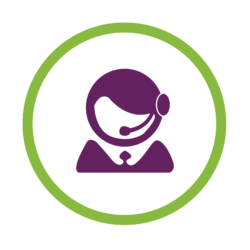Why Medical Interpreter Training?
Communication is fundamental to the relationship between healthcare provider and patients, and language is one of the most formidable obstacles to healthcare access by members of ethno-cultural communities.
Failure to insure adequate communication through professional medical interpreter services places the clinician and other healthcare professionals at increased risk for malpractice claims.
There is a widespread misconception that simply because an individual speaks a different language, he or she is able to provide adequate interpreting and/or translation, and most often the parties lack the skills to judge the quality of the interpretation/translation.
Establishing a consistent set of interpreter Standards of Practice by which interpreting services can be measured is important for patient health. These standards can also be used for a variety of purposes, including training, job descriptions, and performance evaluation.
iTi has medical interpreter training programs that include a language proficiency assessment to equip healthcare facilities with qualified, experienced and trained interpreters. These programs aim to increase levels of communication in order to provide superior care to limited English proficient patients.
iTi Medical Interpreter Training Program
iTi trainers are certified professionals who are bilingual, bicultural, and have many years of experience as medical interpreters. The instructors are experienced in cultural competence, as well as knowledge of the healthcare system, and will deliver the training from two perspectives:
- Interpreting in healthcare ethical principles
- National standard interpreting protocols
This 40-hour course meets minimum requirements for national certification and follows a lecture-based and role play training approach. The format encompasses a variety of interactive exercises and discussions, case study analysis, selected readings, and media including digital, video, and audio technologies.
In addition, this medical interpreter training program is based on the federal standards for providing Culturally and Linguistically Appropriate Services as issued by the U.S. Department of Health and Human Services Office of Minority Health, as well as national standards of practice for healthcare interpreting as issued by the National Council on Interpreting in Health Care. The training focuses on:
- Interpreting techniques
- Medical/mental terminology and colloquial language
- Developing an understanding of communication strategies
- Developing listening and memorization skills
- Ethical guidelines
- Decision-making

Certification
Medical Interpreter Certification is controlled on a national level by two national boards: Certification Commission for Healthcare Interpreters (CCHI) & The National Board of Certification For Medical Interpreters (NBCMI). Individuals who complete the 40-hour training and wish to pursue certification will have to go directly through either nation board. iTi is here to support you and your employees on their path to certification.
Click the link below for more information on the differences between CCHI and NBCMI.
iTi Interpreting Services
Customized Training Solutions
Interpreter training is a great addition to an organization’s professional development initiatives. Enhance your organization’s effectiveness while building team morale by offering a new way for employees to not only develop their own skills but also provide superior service to all customers regardless of the language they speak!
We create customized plans for organizations so contact us today and get your bilingual staff on the right track to becoming certified interpreters!


 Over the Phone Interpreting
Over the Phone Interpreting

